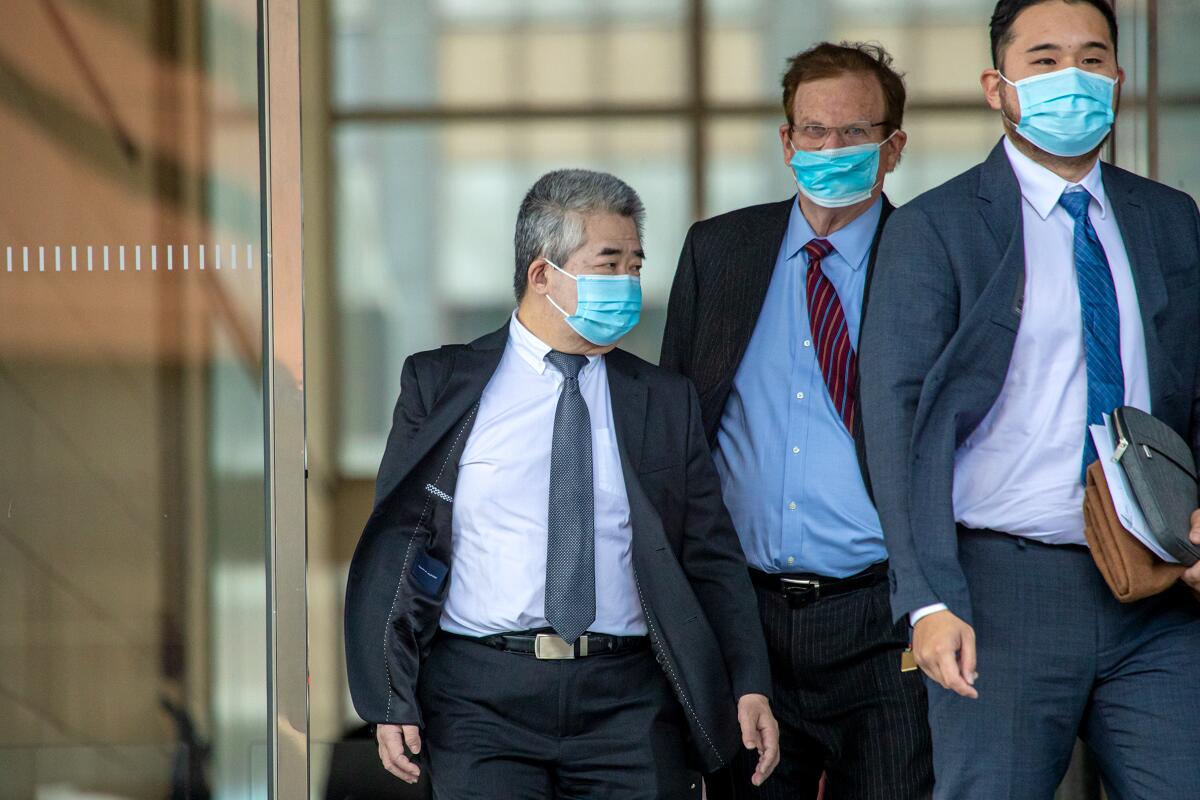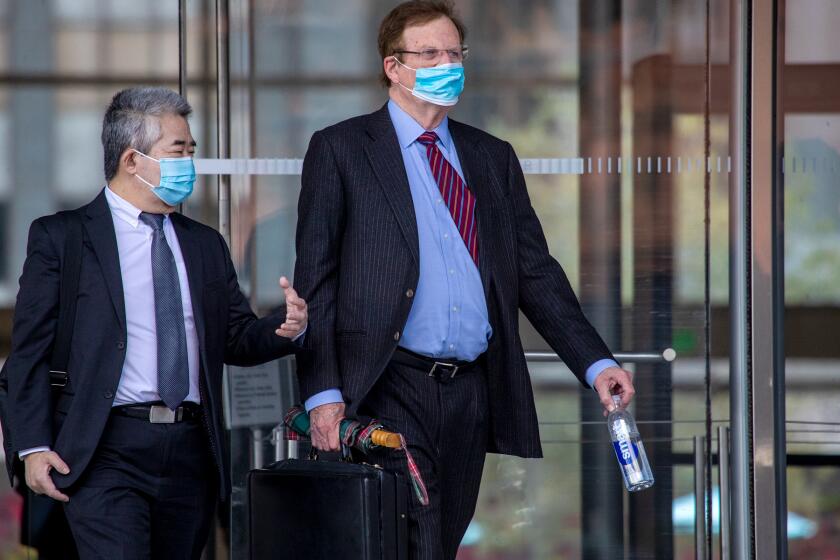Former L.A. deputy mayor goes on trial a second time in bribery and racketeering case

- Share via
Federal prosecutors launched their second attempt at convicting former Los Angeles Deputy Mayor Raymond Chan on corruption charges this week by portraying him as a central figure in a sprawling “pay-to-play” scheme.
In opening arguments on Tuesday, Assistant U.S. Atty. Brian R. Faerstein told jurors that Chan and former City Councilmember Jose Huizar used the downtown real estate boom of the prior decade to enrich themselves and their allies.
Faerstein described Chan as a crucial intermediary between Chinese developers looking to build downtown high-rises and Huizar, who headed the powerful committee that served as a clearinghouse for such projects.
“[Chan] got bribes for himself, and he got bribes for other public officials,” Faerstein said.
Chan’s first trial on charges of racketeering, bribery, honest services fraud and lying to federal investigators was derailed after his lawyer, Harland Braun, was hospitalized and unable to return to work for months. A judge declared a mistrial in April.
Chan is the last defendant charged in the City Hall corruption investigation, dubbed “Casino Loyale” by the federal government, to go on trial. Huizar, who pleaded guilty to racketeering and tax evasion charges, was sentenced in January to 13 years in prison.
A federal judge declared a mistrial in former Deputy Mayor Raymond Chan’s case, one of the last prosecutions in the L.A. City Hall corruption scandal.
George Esparza, Huizar’s onetime aide, pleaded guilty to racketeering conspiracy but has not yet been sentenced. He is scheduled to testify against Chan. Real estate consultant George Chiang, who worked with Chan and also pleaded guilty to racketeering, is expected to testify as well.
John Hanusz, Chan’s new attorney, agreed that Huizar and the others were deeply corrupt, committing crimes on a level that was “cinematic in scope.” But while Huizar and Esparza accepted flights to Las Vegas, casino chips and lavish hotel stays, Chan received none of those things, he said.
Chan, while working with developers, was motivated not by greed but by a desire to make L.A. more business-friendly, Hanusz said.
“There was no quid pro quo in this case with Ray Chan,” he said. “With Jose Huizar, there absolutely was.”
Hanusz told the jury that some of the government’s witnesses are liars who committed crimes — and now hope that their testimony will result in a lighter prison sentence.
The case against Chan covers the five-year period from 2013 to 2018, when Huizar was in charge of the council’s Planning and Land Use Management Committee. In that position, Huizar had the power to decide when real estate projects received a public hearing and when they would be sent to the full council for a vote.
Chan was the top executive at the Department of Building and Safety until 2016, when he became the deputy mayor in charge of economic development under Mayor Eric Garcetti. He held that job for slightly more than a year, then left city government to become a private-sector consultant, representing real estate developers.
Prosecutors have accused Chan of secretly setting up a consulting firm while working for the city and overseeing government actions for which he was paid by a developer after he left his city employment.
The federal government also alleges that Chan helped Huizar obtain a bribe from a Chinese developer who later sought to build a 77-story skyscraper in Huizar’s district. Huizar later admitted that the developer helped him secure a $600,000 loan that he used to secretly settle a sexual harassment lawsuit filed by a former staffer, right before a reelection campaign.
Prosecutors said Chan helped Huizar obtain the funds after Huizar killed a proposed merger of the Department of City Planning and the Department of Building and Safety. That merger threatened Chan’s job as general manager at Building and Safety, prosecutors said.
Shen Zhen New World I, the company that proposed the 77-story tower, was convicted of providing Huizar a vast array of bribes, including trips to Vegas. A judge fined the company $4 million. Its owner, Wei Huang, fled the country and is now a fugitive, according to the Department of Justice.
Hanusz, in his remarks, called the government’s case against Chan a “fiction.” Chan was a respected city leader with decades of experience who focused on tearing down bureaucratic obstacles to new construction, he said.
“He rolled out the red carpet” for real estate development, the lawyer said. “And this city benefited.”
More to Read
Sign up for Essential California
The most important California stories and recommendations in your inbox every morning.
You may occasionally receive promotional content from the Los Angeles Times.












